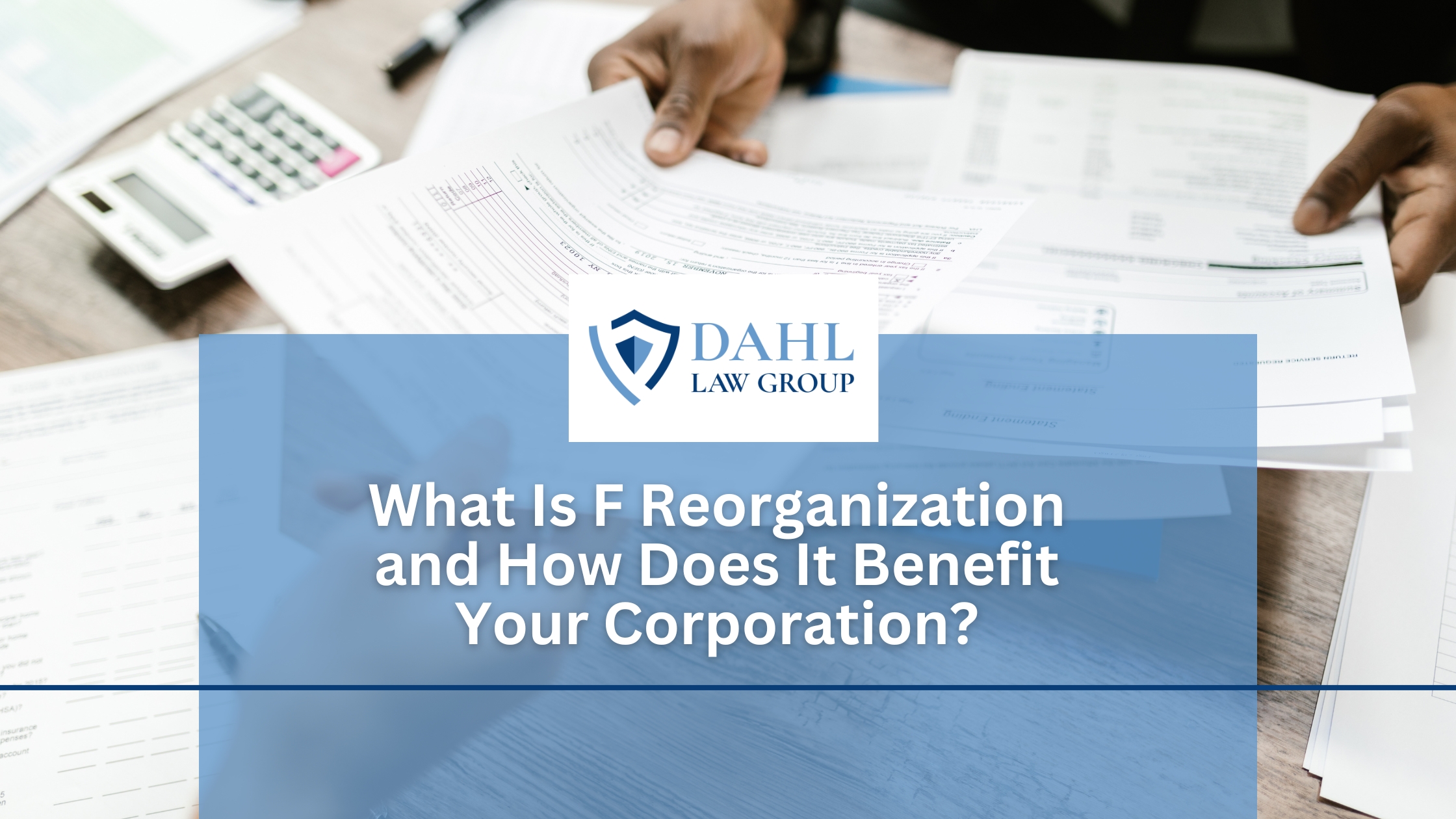
F Reorganizations are increasing in popularity in the mergers and acquisitions market. If you’ve participated in the sale or acquisition of an S-corporation recently, then you’ve likely encountered this growing concept.
Understanding what an F Reorganization is and how it benefits your corporation is critical as you look to get the most value from your M&A transaction while keeping tax liabilities low.
What is F Reorganization?
Internal Revenue Code Section 368(a)(1)(F) defines an F Reorganization as “a mere change in identity, form, or place of organization of one corporation, however effected.” The F Reorganization involves a tax-free reorganization of the company from the seller’s perspective.
Typically, these involve S-Corps due to their pass-through tax considerations where the corporation itself does not pay taxes, as shareholders instead pay taxes as individuals. Such a reorganization affords more flexibility to potential buyers. Additionally, an F Reorganization is necessary to create greater flexibility for LLCs or other entities that represent investment groups to operate as subchapter shareholders of S-Corps. This is typically not permitted, as S-Corp shareholders are normally restricted to individuals only.
How Does an F Reorganization Benefit Corporations?
Undergoing an F Reorganization allows the buyer more flexibility instead of merely relying on IRC Section 338(h)(10) or IRC Section 336(e) elections. A Section 338(h)(10) election is a tax strategy for buyers to purchase the stock of the target company while electing to designate the purchase as an asset purchase instead. A Section 336(e) election is where a corporation treats the sale as a sale of all underlying assets for federal income tax purposes.
While there are tax benefits to each of these elections, an F Reorganization grants the buyer the ability to use cash and buyer rollover stock in the resulting purchase price in the M&A deal. As we’ve discussed previously, there are certain tax advantages to a stock sale vs. an asset sale. The former is more beneficial for the seller while the latter is more beneficial for the buyer. Buyers in an asset purchase are able to allocate funds in the purchase to depreciable assets, which provides a notable tax benefit, whereas a seller prefers to avoid the depreciation recapture that would come in an asset sale but not a stock sale.
Instead of electing to use one of the elections above, the F Reorganization allows the seller to file taxes on the sale as though it were a stock sale, while the buyer can treat it as an asset purchase for tax purposes. The seller creates a fully-owned subsidiary that fully owns the assets of the target company.
Navigating an M&A Deal with Confidence
At Dahl Law Group, our experienced team of attorneys and legal professionals frequently helps California individuals and businesses through mergers and acquisitions. These business transactions require careful attention and an understanding of the numerous options and mechanisms available to save time, money and keep operations running smoothly pre-and-post-sale. Contact Dahl Law Group to better understand how an F Reorganization could help you through the sale or purchase of a California business.



